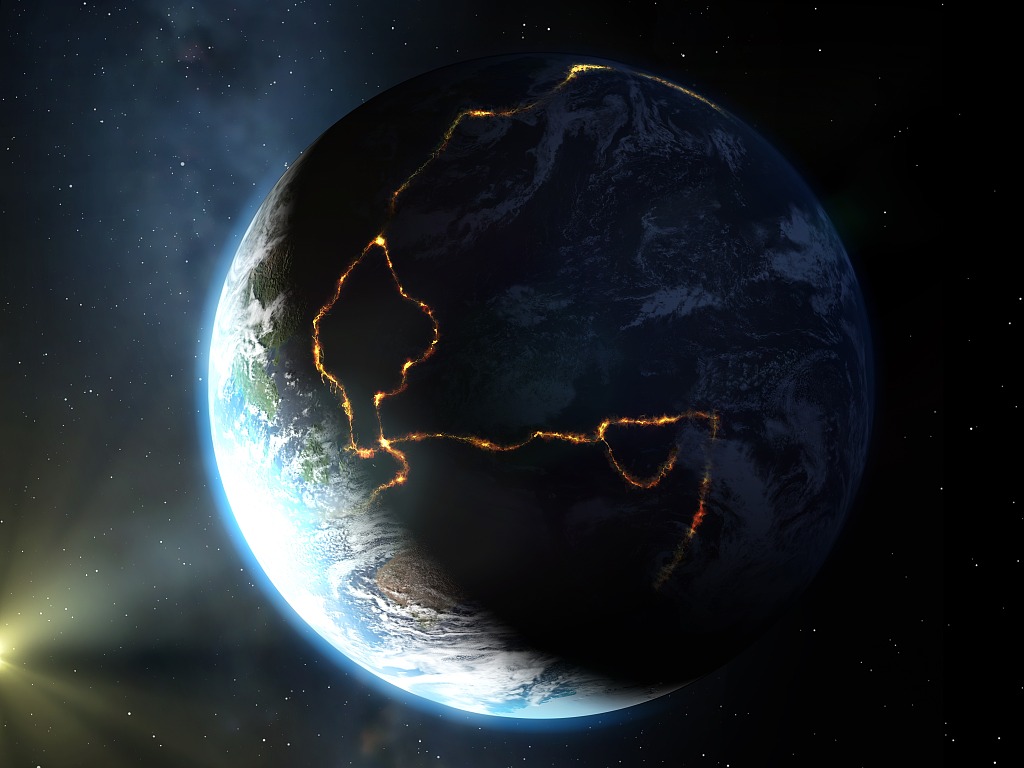
A satellite view of Tonga on January 18, 2022, after tsunami waves hit the island following a series of violent eruptions from the Hunga Tonga-Hunga Ha'apai volcano, 65 kilometers north of the country's main island Tongatapu, January 15, 2022. /CFP
A satellite view of Tonga on January 18, 2022, after tsunami waves hit the island following a series of violent eruptions from the Hunga Tonga-Hunga Ha'apai volcano, 65 kilometers north of the country's main island Tongatapu, January 15, 2022. /CFP
A massive underwater volcano erupted continuously in Tonga on January 14 and 15, triggering a deadly tsunami, covering islands in ash and knocking out local communications. Tsunamis also affected other countries around the Pacific Ocean, including Japan, the U.S. and Peru.
After the eruption, discussions related to the eruption went viral on the internet. Many wanted to know why the volcano suddenly erupted as it remained "sleeping" for decades, and why the eruption was so big. Ji Jianqing, a professor at the School of Earth and Space Sciences at Peking University, shared his opinions with CGTN Nature.
"Whether a volcano erupts or not depends on the pressure level of the magma chamber below the crater. If the pressure exceeds the level that overlying strata – a layer of rock above the chamber – can support, the eruption happens. More pressure means a more powerful eruption. If the pressure level decreases, the eruption stops and the volcano becomes a dormant, or 'sleeping,' volcano," said Ji.

Pressure of the magma chamber below the crater is a key factor to determine whether the volcano erupts or not. /VCG
Pressure of the magma chamber below the crater is a key factor to determine whether the volcano erupts or not. /VCG
Ji explained the connection between Tonga's location and the volcanic eruption as well. "Tonga is located on the 'Ring of Fire,' which is a region where many volcanic eruptions and earthquakes occur. The lower position of the trench to the east of the volcano caused the accumulation of magma as well as gas. These together raise the pressure, eventually resulting in a big eruption."

The "Ring of Fire" from space. /VCG
The "Ring of Fire" from space. /VCG
Ji also answered questions about whether the eruption represented massive movements of tectonic plates and if the eruption would seriously affect climate change.
"Actually, volcanic eruptions happen almost all the time. We cannot draw a conclusion that the eruption in Tonga represents more upcoming volcanic eruptions in the world, or the tectonic plates are moving more frequently," Ji said.
"As for severe climate change, based on the satellite observations, the total amount of sulfur dioxide (one of the key factors affecting climate change) emitted by the Tonga volcano into the stratosphere is very small, only about 400,000 tonnes. Compared with the previous cases of climate change caused by volcanic eruptions in history, it is less likely to strongly affect climate change."
(If you want to contribute and have specific expertise, please contact us at nature@cgtn.com.)

